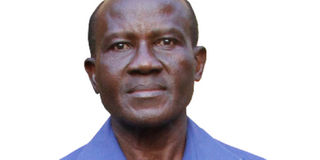Why ordinary sinners love to watch randy pastors

What you need to know:
- Last Sunday, the trio, Joseph Serwadda, Charles Tumwine and Ronald Mukiibi, devoted almost an hour castigating Uganda’s media (especially newspapers) for sustaining an attack on “The Church of Christ”.
When two Pentecostal (or Born Again) ‘apostles’ and one ‘bishop’ talk for almost three hours from 6:30 am on Impact FM/ Dream TV every Sunday, they roam from personal and family small talk, through the stories in the media, or current affairs, to matters of religious faith.
Last Sunday, the trio, Joseph Serwadda, Charles Tumwine and Ronald Mukiibi, devoted almost an hour castigating Uganda’s media (especially newspapers) for sustaining an attack on “The Church of Christ”.
The sin of the media is to give extensive and lurid coverage to the escapades of Uganda’s randy pastors.
Maybe by coincidence, or because Covid-19 restraining measures have rendered them as vulnerable as our newly sexually active but redundant teenagers, our pastors have attracted a lot of attention.
But first, a correction. Our Pentecostal or Born Again groups cannot strictly be referred to as “The Church” in the sense that the Roman Catholic and Anglican Churches are referred to.
Uganda’s Pentecostals are generally shepherded by thousands of independent freelance preachers. They are self-accounting entrepreneurs. They have no common liturgy. They pray as, and preach, what they want. They fiercely compete with one another. They call each other ‘fake’ or ‘false’ without clear references, but when it suits them. That is why, to the disinterested outsider, they are all fake.
The trash about dreams and demons churned out by preachers like Serwadda’s protégé, Pastor Jamada Kikomeko, testifies to the spiritual and intellectual emptiness behind some of these enterprises. But they all read from the same page when they claim to be spiritually and morally superior to Christians in established mainstream churches.
So, the Impact FM trio would more accurately refer to Pentecostal preachers, or maybe their churches; not The Church.
After that correction, are these churches collectively actually under attack by the media? No. The charge comes from those who seek maximum publicity when their stories render them larger than life, and who believe they are persecuted when their stories are not glorifying.
Unfortunately, the penchant for being centre-stage sometimes blurs one’s judgement of the boundaries of decent self-exposure.
Way back when balokole (the saved ones) were mostly ex-wretched Anglican lives that had got transformed, before Pentecostal makeshift (biwempe) outfits mushroomed and recruited some of them, the balokole often told stories about their old lives that made you marvel at the range of human wickedness.
Far more recently, on two separate occasions, I have heard Joseph Serwadda narrate on his own radio station how 16 (yes, 16) young women besieged his father, each of them accusing Serwadda of breaching his promise to marry her.
It is a bizarre story, almost from any angle. Even an Elvis Presley, or some other permissive society heartthrob, or Good Black; anyone would have had to act in a peculiarly dodgy way, risking being mistaken for a ‘muyaaye’, before finding himself in such a situation.
When people fall from high places, they really fall. Lurid stories involving pastors have a special appeal to media consumers because the actors are characterised by a near-pathological self-righteousness. They are falling from a very high level of spiritual and moral arrogance.
Announcing that The Church is under attack, of course, has a dramatic effect. But nobody is alarmed. If they had a grain of humility, the gift of all other Christian, Muslim, Budhist or Hindu clergymen who deserve reverence among their flocks, and respect among the larger society, Uganda’s pastors would quickly understand that it is not Christianity that is under attack, but their incurable arrogance and hypocrisy.




